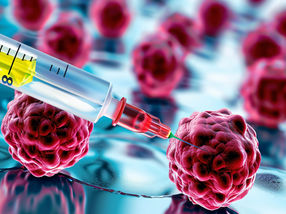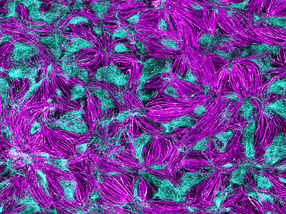New CD85d (ILT4)-PE RUO Monoclonal Antibody Identifies Tolerogenic Cells
Beckman Coulter introduces IOTest® CD85d-(ILT4)-PE conjugated monoclonal antibody. ILT4 is selectively expressed on myelomonocytic cells and binds to classical and nonclassical human leucocyte antigen (HLA) class I molecules. ILT4 is believed to play a number of roles in cellular function, including the modulation of APC functions (e.g. antigen uptake, migration and cytokine production), control of inflammatory response and maternal tolerance against the fetal semi-allograft.
According to Beckman Coulter, the new CD85d-PE antibody is useful in basic research on leucocyte function, dendritic cells, immunosuppression, tolerogenicity and maternofetal tolerance. Its ability to identify tolerogenic cells makes the new antibody particularly valuable for transplant and cancer research. It is also applicable in clinical research on autoimmunity. CD85d-PE delivers advantages over other antibodies in applications where control of tolerogenicity is important.
Most read news
Organizations
Other news from the department research and development

Get the life science industry in your inbox
From now on, don't miss a thing: Our newsletter for biotechnology, pharma and life sciences brings you up to date every Tuesday and Thursday. The latest industry news, product highlights and innovations - compact and easy to understand in your inbox. Researched by us so you don't have to.
Most read news
More news from our other portals
See the theme worlds for related content
Topic world Antibodies
Antibodies are specialized molecules of our immune system that can specifically recognize and neutralize pathogens or foreign substances. Antibody research in biotech and pharma has recognized this natural defense potential and is working intensively to make it therapeutically useful. From monoclonal antibodies used against cancer or autoimmune diseases to antibody-drug conjugates that specifically transport drugs to disease cells - the possibilities are enormous

Topic world Antibodies
Antibodies are specialized molecules of our immune system that can specifically recognize and neutralize pathogens or foreign substances. Antibody research in biotech and pharma has recognized this natural defense potential and is working intensively to make it therapeutically useful. From monoclonal antibodies used against cancer or autoimmune diseases to antibody-drug conjugates that specifically transport drugs to disease cells - the possibilities are enormous























































